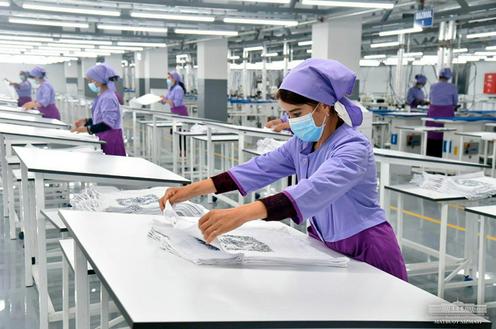A public council will be created under the Agency for the Development of Light Industry of Uzbekistan, the Ministry of Justice reported, citing a presidential decree signed on September 19, “On Creating Additional Conditions for the Production of High Value-Added Products and Increasing Exports in the Light Industry Sector.”
The council will serve as a new consultative platform for dialogue between the state, business, and the expert community. Its tasks will include drafting recommendations for the industry’s priority areas, evaluating the effectiveness of government programs, and supporting the adoption of international quality and certification standards.
In the near future, light industry enterprises will gain access to new forms of state support, including:
▪️ coverage of expenses for attracting international brands and implementing global standards;
▪️ subsidies for export contracts;
▪️ grants for training specialists;
▪️ partial reimbursement of costs for promoting products abroad.
All these initiatives will be reviewed and refined with input from the public council members.
The same decree sets targets for 2026: a 9 percent increase in production to 146 trillion soums ($12 billion) and an increase in exports to $3.3 billion. The document also provides for financial rehabilitation measures for cotton-textile and knitwear clusters with outstanding loans from the State Agricultural Support Fund for the 2022–2023 cotton harvest.
Clusters that have fully secured their collateral will, starting August 1, 2025, be allowed to first repay only the principal on their loans and, after full repayment, pay the interest in equal installments over the following 12 months.
For clusters that have been meeting repayment schedules for both principal and interest, 50 percent of the interest already paid to the Fund after August 1 of this year will be refunded. In addition, all penalties accrued for nonpayment of interest as of August 1, 2025, will be written off.
To support farmers supplying raw materials to processing enterprises, starting in 2025 a subsidy of 1 million soums ($80) per ton of raw cotton sold on the exchange will be introduced.
Clusters and industry enterprises that purchase or grow cotton at their own expense will receive compensation equal to 10 percent of the value of the raw cotton.
From September 1, 2025, for a period of three years, the social tax rate for cotton-textile clusters and textile, knitwear, and garment enterprises will be reduced to 1 percent. Import duties will be waived on blended fabrics, cloth, and raw materials needed for the leather and silk industries that are not produced in Uzbekistan.
Large enterprises in the sector (with more than 200 employees) that establish their own preschool educational institutions will receive budget subsidies on the same terms as private family-run kindergartens.
President Shavkat Mirziyoyev announced the creation of the Light Industry Development Agency in August this year. The agency is headed by Nozimjon Kholmurodov, former first deputy minister of investment, industry, and trade. It will coordinate the development of the textile, leather, silk, and carpet sectors, foster dialogue with business, implement modern standards and digital technologies, and provide financial support through a $200 million special fund.
The agency’s key objectives are to reduce production costs, increase output and exports, expand the use of “processing on customs territory,” strengthen cooperation between enterprises, and support their financial recovery. Mirziyoyev has also set goals to raise the number of enterprises with international certificates to 300, attract major global brands, open trade houses in the United States, and introduce ERP systems and artificial intelligence technologies across the industry.
The total volume of state support measures is estimated at 7 trillion soums ($560 million). Mirziyoyev stressed the importance of ensuring the effectiveness of these investments and instructed that a development program for the sector through 2030 be drafted jointly with international consultants.










